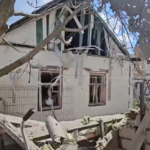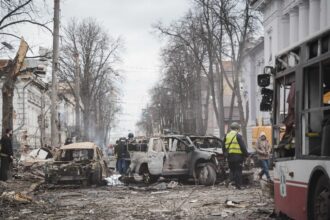The article discusses Ukraine’s efforts to develop its own missile production capabilities, known as the “Neptune” and “Vilcha” programs. Despite claims of significant progress, the actual production levels remain unclear due to secrecy surrounding the program.
Ukraine’s technological savvy and industrial capacity are not in question, but rather the security threats posed by Russian air attacks on factories involved in missile production. The article highlights several instances where Russian airstrikes have targeted Ukrainian chemical plants and factories, including one that produced solid rocket fuel in Pavlohrad.
The development of a local missile program would allow Ukraine to strike back at Russia directly, without relying on Western donations or oversight. However, the article suggests that Ukraine is overselling its achievements in this area, with little evidence of actual production or deployment of these missiles.
Experts interviewed for the article, including Duitsman and Hoffmann, express skepticism about Ukraine’s claims of significant progress in missile production. They argue that the focus on such programs may be more about national pride and independence than actual military capabilities.
The article also touches on Russia’s own missile development programs, highlighting instances where they have oversold their achievements for political or PR purposes. The Oreshnik missile, which struck Pivdenmash in November, is cited as an example of this phenomenon.
Overall, the article raises questions about Ukraine’s actual progress in developing its own missile production capabilities and suggests that the emphasis on such programs may be more about politics and national pride than military necessity.













